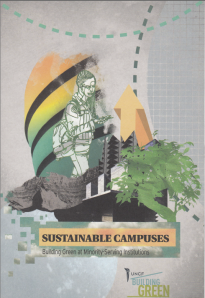Last Friday, I had the opportunity to participate on a panel at the 2nd Annual Slow Living Summit in Brattleboro, VT.
‘Slow Living’ as described by the organizers; “…is shorthand for taking a more reflective approach to living and work; an approach that is mindful of impacts on the environment, on Earth, and on communities; and that incorporates resilience — our ability to “bounce back” from the consequences of climate change, resource depletion and other changes and stresses...“Slow” encodes the transformative change from faster and cheaper to slower and better—where quality, community and the future matter.”
The Summit program was broken into multiple tracks, covering a range of topics including community supported agriculture, media & journalism, sustainable investing & finance, community building, renewable energy, and education to name a few. For a detailed description of the program click here.
Our session was titled, EDUCATION: Sustainability in Higher Education: Leadership by Example? It was moderated by Jerelyn Wilson, Outreach Director at Building Green LLC, and included the following panelist:
Read more

 2012 Second Nature Climate Leadership Awards
2012 Second Nature Climate Leadership Awards
 The United Negro College Fund (
The United Negro College Fund (